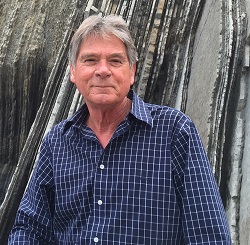- 00
Days
- 00
Hours
- 00
Minutes
- 00
Seconds
Days
Hours
Minutes
Seconds
The Anthropocene Epoch or the Anthropocene Event?
Stanley C. Finney, International Union of Geological Sciences and Department of Earth Sciences, California State University at Long Beach, California, USA.
The endeavor to formalize an ‘Anthropocene Epoch’ has generated great publicity over the last 15 years that ranges from scientific articles by members of the Anthropocene Working Group and a range of other earth and social scientists to articles for the public in newspapers and magazines worldwide. Unfortuantely, most authors fail to consider or chose to ignore the history and nature of units defined by the International Commission on Stratigraphy (ICS) and ratified by the executive committee of the International Union of Geological Sciences (IUGS), and they focus their attention on the starting date in the 1950s for the epoch. The ICS defines chronostratigraphic units, that is bodies of strata, which depending on their rank and extend are denoted as systems, series, and stages. The time interval in the past during which these strata accumulated are denoted as periods, epochs, and ages. The intervals of time (e.g., Cambrian Period) are based on the stratigraphic interval for which it is named (e.g., Cambrian System) and the stratigraphic content and limits of that stratigraphic interval, which are compiled by correlations between and from stratigraphic sections worldwide. GSSPs (global stratigraphic sections and points) are chosen to set the limits of the stratigraphic content of a unit and thus define its boundaries. The focus on the ‘Anthropocene Epoch’ and its starting date ignores what the ICS defines - the chronostratigraphic unit and stratigraphic level that marks its limit. Furthermore, in the case of an ‘Anthropocene Epoch”, a late acceleration in the rate of human impact on the Earth system is emphasized in selection of the lower boundary, which follows a very long history of evolving and intensifying human impact on the Earth system during which accumulated a much greater stratigraphic record of human impact than that which has accumulated since the 1950s. As human life has evolved on Earth, human impact has spread and evolved, and today it effects the entire surface of the Earth including its hydrosphere and atmosphere. This fourth great biotic induced transformation of Earth’s surface viewed as an event – the Anthropocene Event – is a concept like that of the Renaissance. Although a precise date is not specified for its beginning, the term is well established and conveys a singular meaning of the content of that period, where it began, how it evolved, and how it spread. Is putting an official beginning on the Anthropocene any more advantageous than on the Renaissance? Epoch or event, what do you think?
 Curriculum Vitae
Curriculum Vitae